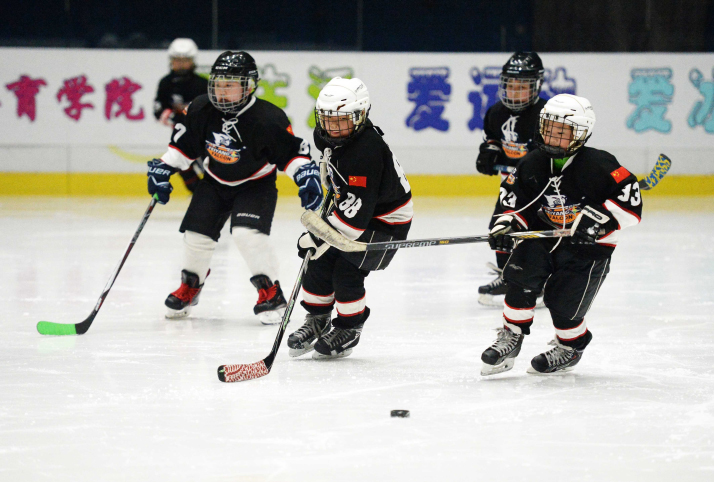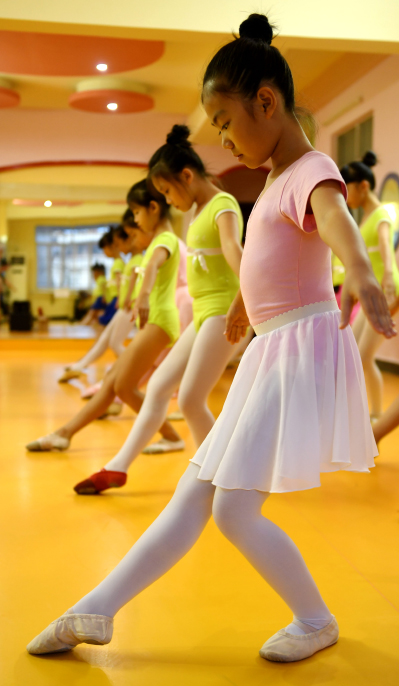| Lifestyle |
| Valuable Lessons | |
| The Double Take column looks at a single topic from a Chinese and African perspective. This month we discuss whether parents should force their children to take extracurricular activities. | |
|
|
 Ice hockey is a popular excurricular activity among Chinese children . (XINHUA)  Children attend excurricular dance class. . (XINHUA) Driven by Passion Lin Xing, a 35-year-old mother in Beijing who has a six-year-old daughter Chinese parents are known for placing really high expectations on their children. They are often willing to spend a lot of money in different extracurricular classes in search of academic excellence to ensure their children are prepared right from the word go. Although this action can be understood to a certain degree, forcing children to take various extracurricular activities, or any extracurricular activity for that matter, is not the way forward. For the most part, it can be agreed that parents try to have their children's best interests at heart when they make decisions that affect them (the children). However, the right way to go about it would be one in which parents decide about extracurricular activities together with their child. I think that a child's capability to understand things should not be underestimated. So, rather than force a child, a parent should first help them understand the benefit of taking extracurricular activities. When this is done successfully, a child will be more open to the idea and be willing to do it. Beyond this point is the act of choosing the activities. Who does the choosing, the parents or the child? While the act of choosing should not be left solely to the child, we have to be careful not to fall into the trap of thinking that they don't know what they want. Therefore, it is far better for parents and their child to go through this process together. While consciously allowing their children to make independent choices about what they want, parents have the responsibility of guiding and directing their children in the best way possible. This way, both the child and the parents will have a combined set of ideas, which helps guide them to make the best choices of extracurricular activities. CA Comments to xyy@chinafrica.cn Collective Decisions Tionge Rose Mary Mhone, a 26-year-old Malawian student studying for a master's degree at Communication University of China Children should be raised along their natural growth path instead of being forced to do something. My experience has taught me that nothing done forcibly is going to end well. I have a daughter now in the first grade of primary school. Two years ago, like most other Chinese parents, I sent my daughter to attend a lot of extracurricular classes, such as ballet, English, piano and mathematics. This cost me around 30,000 yuan ($4,600) a year. I was not raising a child, but burning money. I have my reasons for saying this. First, parents of my generation suffer from widespread anxiety over our children's futures. It is the social environment in China that dictates parents send their children to attend extracurricular classes so as to be well prepared and ahead of the pack. You will be left behind if you don't follow suit. Second, there is not much academic burden for children in primary school and kindergarten and they have a lot of spare time. It will be a wasted opportunity if this time to enjoy playing was squandered. Third, children should be encouraged to discover their interests when they are young as this can help a child cultivate ideas, which will stand them in good stead throughout their lives. However, the problem I later faced with my daughter was that she couldn't keep up with her extracurricular classes for any length of time. I tried to force her to persist, but it was in vain. We were both trapped in a painful cycle. It was then that I realized we needed to find out what she is really interested in. I talked to my daughter and told her to do what she loves and to find her passion and be happy. Now she only attends dancing classes on weekends as dance is what she loves to do. Parents should not only recognize passion, but also give children space and time to develop it. There is no need to worry that the child's future success is at stake. |
|
||
|
||||||||||||||||||||||||||||
|